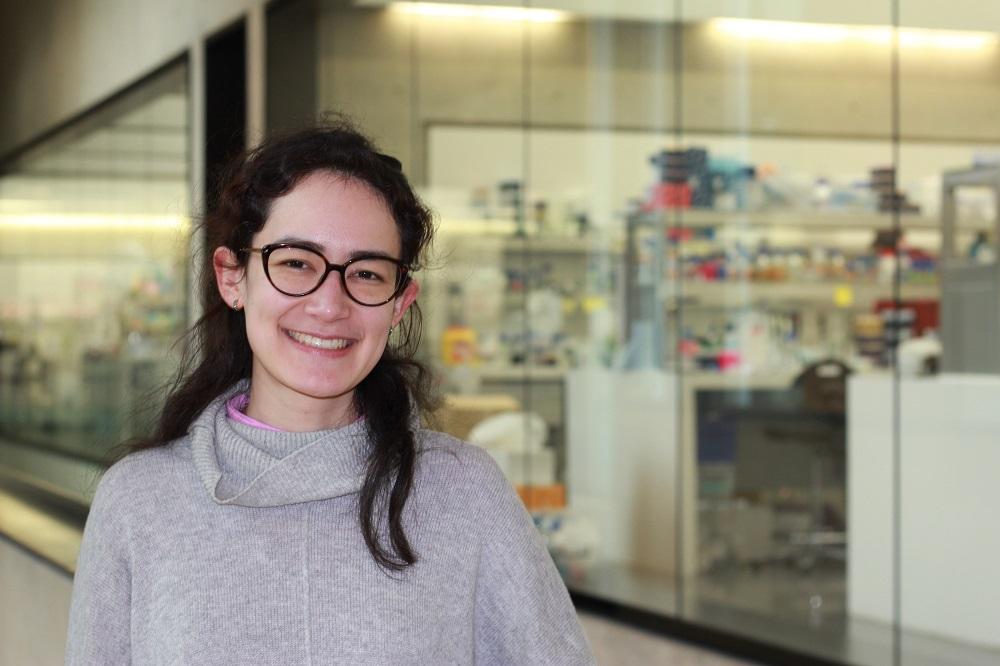
Dr Helen Saville
Research Assistant
Helen is researching the role of the cytoskeleton in cell and developmental biology using synthetic and systems biology approaches, and computer modelling.
What is your research question?
I'm part of a project studying the mechanisms behind cell division, with collaborations between wet lab and computational groups. Our group has developed a piece of software called Cytosim for modelling the cytoskeleton, which is the network of protein filaments that provides structure to cells and orchestrates division. Being fairly new to the area, I’ve recently been spending a lot of time reading papers in the field and learning the relevant programming language, so that I can use and extend the software to study cell division.
Why did you choose to study science?
Towards the end of secondary school I started really enjoying maths and read some popular maths book that gave me a feel for the much wider (and weirder) range of maths topics that exist at degree level. It was really cool to see how maths could be used to model biological processes during my undergraduate degree. This led me to do a PhD in fluid dynamics for biomedical applications. Switching from solving set maths problems to the uncertainty of research was definitely a challenge but a rewarding one.
What really interests you about science?
It’s crazy to think of any seemingly mundane part of your body (or any other living organism) and know that there are so many complex and little understood processes going on within it. Coming from a maths background, I’m most excited to see how quantitative modelling can be used to gain insight and complement experimental techniques.
What advice do you have for girls thinking about studying science at degree level?
It can be useful to find examples of women in your field, to reinforce the sense you belong even if you might be in a minority. University maths classrooms can sometimes be awkward and silent, but it’s great to ask all the questions you have, to get as much from your degree as possible and make learning a more enjoyable experience for everyone there. It can be a good idea to take some project/research units if they’re offered, to develop skills that you can’t get from solving problem sheet questions.
Do you have a female STEM role model?
I have a few! I was lucky to have a great role model in my PhD supervisor Sarah Waters, who balances a research career and family, while being a kind supervisor and great at bringing scientists and mathematicians together for projects. I watched a career interview with the mathematician Shabnam Beheshti a couple of years ago, and was really struck by her generosity towards researchers at an earlier career stage. Although they may be more peers than role models, it was encouraging to have female phd students in the same research group, who I could see overcoming struggles and conducting amazing research.
